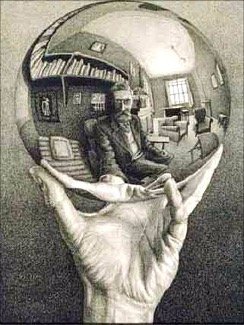Existentialism in French and German Literature

Beginning with the first philosophers, there has been nearly nobody who has not try to write about the existence. Then, who are those people who are specifically named as existentialists? To answer this question, a brief description of existentialism is to be given: existentialism basically supports the idea that existence precedes essence. Until its emergence in 19th century, because traditional religious thinking and philosophy were integrated with each other, giving priority to existence was an extraordinary approach. However, this trend deeply impacted the 20th century. The remarkable influence of existentialism in modern era can be observed best in French and German literature.
To begin with, due to the fact that the most significant writers of the French literature are highly interested in existential thoughts in their writings, it can be proclaimed that existentialism has a deep impact in France of modern times. First, prominent intellectual Jean-Paul Sartre is one of he pioneers of existentialism in French literature. According to Sartre (as cited in Law, 2007, p. 24), the essential impact of existentialism, which gives mankind the liabilities of their own beings, basically results from the fact that existence is prior to essence. In order to explain this idea, it can be proclaimed that contrary to religious and moral norms, the value of individual does not result from the precious essence given by the God. Rather, the value of individual is determined by his/her choices, thoughts, priorities and lifestyle, namely, by his active existence. Hence, mankind has the responsibility of its own existence, that is to say, people become meritorious with their behaviors. Namely, people are what they make of themselves, not what is made by a holy hand. Second, Samuel Beckett who is famous with his plays based on existential absurdity is another important figure in French literature. He, as an absurdist play writer, points out to the fact that mankind’s being is mostly lost in the meaninglessness due to the insufficiency of language (Tan, 2007, p. 22). To get beneath the surface, absurdity can be described as a state of senselessness combined with ridiculous situations in people’s aimless existence. Accordingly, this state can explicitly be seen in all of his writings. For instance, non-stop growing corpse flies out of the window with no reasonable explanation in one of his books. In fact, this lack of reasonable explanation is a reference to the inadequacy of language. Beckett believes communication is not exactly possible. Thus, there is only an absurd situation among people who are trying to understand each other. Hence, all these result in the fact that mankind is lost in a meaningless being.
Next, existentialism also has a big effect in German literature. Firstly, Friedrich Nietzsche whose writings can be considered as the sacred writings of existentialism is one of the greatest writers of German literature. He harshly criticized the Judeo-Christian morality in which human essence is praised and blessed. Accordingly, he humiliated people who are trying to be a part of the “blessed herd” in his writings. Just like Sartre, he claims that the fallacy of God’s blessing of people’s essence must be destroyed and people should go beyond the limits of humanity and create the value of their own existence. This brings Nietzsche to the concept of “Superman” which corresponds to people who are capable of giving a meaning to their existence by themselves. That is, they are people who are able to destroy the traditional gods and to find the real gods in themselves. Nietzsche (1961) states this as “God has died: now we desire – the Superman shall live” (p.297).
Second, Martin Heidegger whose writings exemplify the concerns of existentialism is another German writer. In an era in which God is believed to be no more alive by most intellectuals, Heidegger, too, lost his meaning of existence as an old Christian theologian who was deeply impacted by this Nietzschean existential trend. Because in the first place he was charmed with the idea that we are precious because of god-given worthy essence, it was a destruction of all of his beliefs when he read more of Nietzsche. However, unlike Nietzsche, he did not tend to conclude in a total nihilism and explained that a man can merely comprehend the sense of existence by being aware of meaninglessness (1967, p. 184). Furthermore, Heidegger considered meaninglessness as a meaning in itself and held that confronting this horrifying truth lets people touch the deepest parts of their existence. Namely, as a typical existentialist, he said that those who manage to come face to face with this fear are people who are meritorious because of their courage to do this. Again, in Heidegger’s writings, too, mankind is not considered to be precious unless they show the courage he had mentioned.
All in all, to follow the footprints of existentialism in modern ages, the best locations to look at are French and German literatures. With the death of god, responsibilities that are put on the shoulders of mankind and the ideas of meaninglessness announced the independency of philosophy from religion. Even if it might be hard to accept that it is so, the thought that existence precedes essence will carry on influencing people in the light of these great writers.